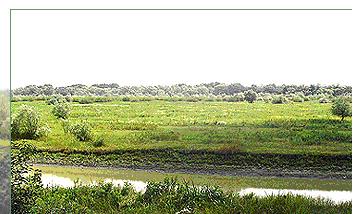Case study:Ecological Restoration of Natural Lake Pochina
Project overview
| Status | Complete |
|---|---|
| Project web site | http://www.luncaprut.ro |
| Themes | Habitat and biodiversity |
| Country | Romania |
| Main contact forename | Fica |
| Main contact surname | Boldea |
| Main contact user ID | |
| Contact organisation | Prut - Barlad River Basin Authority |
| Contact organisation web site | http://www.rowater.ro/daprut/default.aspx |
| Partner organisations | University of Bucharest – Centre for Environmental Research and Impact Studies, Romania; Romanian Ornithological Society, Romania; Galaţi Forestry District, Romania |
| This is a parent project encompassing the following projects |
Ecological Restoration of Natural Lake Pochina |
Project summary
The Lower Prut Floodplain Natural Park is the entrance of the Danube Delta Biosphere Reserve. It lies on the flyway route of hundreds of migratory birds.More than 50 of these birds are listed in the EU Birds Directive and in the Bern Convention.The ecological importance of the park has been recognised at national as well as international levels.
The project objective was to improve the conservation status of 13 priority and more than 50 non-priority bird species listed in the Birds Directive and present in the Lower Prut Floodplain Natural Park.
The first phase of the multi-site project focuses on the establishment of park administrative structures and the preparation of an integrated management plan, to be approved by the local authorities. This plan would guide the conservation activities to be implemented and would consider the protection needs of target habitats and species of the project. A number of actions have been foreseen to address and involve the local community (e.g. dissemination, consultation of every village in the area, and active participation and education with local educational material to be produced). The project was addressed stakeholders in wide variety of ways, including picture books, nature trails, six annual environment days with expeditions into the area, children's exhibitions, and bird watching towers.
The ecological restoration works of Pochina Lake assures, by gravitational transfer a sufficient water volum to contribute to the conservation of this special area, designated Special Protected Area (SPA).
The two channels for Vlăşcuţa Lake (in total length of about 542 m) were reshaped and consolidated, so that they assure the supply and the evacuation from/to lake/river Prut, subject to necessary water level of the lake.
Funding - From LIFE Nature Programme; Co-financing Ministry of Environment and County Council Galati,Regional Agency for Environmental Protection Galati (RAEP Galati)
Monitoring surveys and results
Lessons learnt
Image gallery
|
Catchment and subcatchmentSelect a catchment/subcatchment
Catchment
Subcatchment
Other case studies in this subcatchment: Ecological Restoration of Mata-Radeanu Complex, Ecological Restoration of Vlascuta Lake, The Ciobarciu Wetland Project
Site
Project background
Cost for project phases
Reasons for river restoration
Measures
MonitoringHydromorphological quality elements
Biological quality elements
Physico-chemical quality elements
Any other monitoring, e.g. social, economic
Monitoring documents
Additional documents and videos
Additional links and references
Supplementary InformationEdit Supplementary Information
| |||||||||||||||||||||||||||||||||||||||||||||||||||||||||||||||||||||||||||||||||||||||||||||||||||||||||||||||||||||||||||||||||||||||||||||||||||||||||||||||||||||||||||||||||||||||||||||||||||||||||||||||||||||



